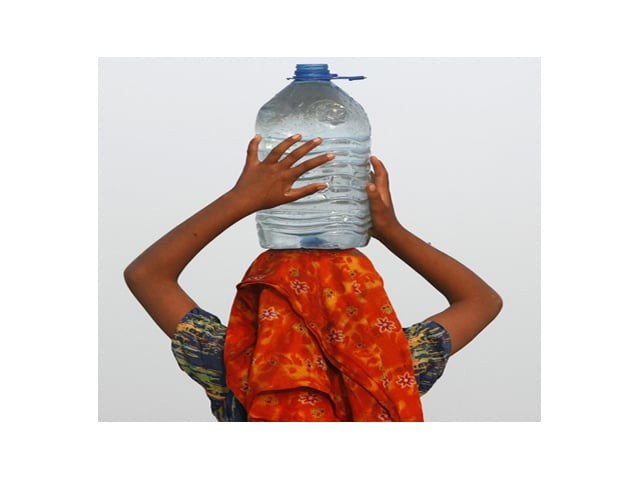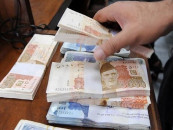Hazardous drinks donated for flood victims
Unregulated and potentially hazardous soft drinks are being donated to collection centres.

These drinks are illegal under government rules for food manufacturers. Among other violations, they do not print the ingredients or the expiry date on their labels, and the drinks often contain banned food colours and other substances.
Shahid Khan, an analyst at a food laboratory of the city government, said that in recent testing, they found that samples from 44.44 percent of beverages (including sodas, squashes, fruit juice drinks and sherbets) were unfit for human consumption. Beverages were found to be the food item most likely to contain banned substances.
Despite the potential health hazards, it appears that many of the organisations that run collection centres have not devised a mechanism to remove banned food and drinks from their relief consignments.
“We do not have time to go into details such as what is fake and what is genuine,” said Mohsin Ali, a volunteer at a collection centre on GT Road. “This is a time of emergency and our focus is on quick collection and distribution.”
He said the goods that came to the various collection centres were reassembled by category at a main distribution centre, but there was no inspection there either. “There are no instructions from the organisers, so the staff is not bothered about what is what,” he said.
Salman Farooq, a volunteer at a collection centre on The Mall, recalled a conversation about unregulated drinks he had with his colleague at another collection centre organised by the Pakistan Generations Development Foundation nearby. “My friend told me off, saying now was not the time to create obstructions. He thought it would have a negative impact on the collection campaign,” he said.
Naveed Chaudhry, a PPP leader, said the provincial government led by the PML-N should do a better job with regulation. “People who donate food and drinks at collection centres purchase them from local markets plagued with adulterated daily commodities due to the negligence of the district and provincial setups,” he said.
Chaudhry said the federal government was keeping a record of donors and their addresses upon receipt of donations.
Umer Sarfaraz Cheema, the information secretary of Pakistan Tehreek-i-Insaf, told The Express Tribune that he was aware of complaints about bad drinks at flood relief collection centres, but the party scrutinised and sorted each item donated at their centres before sending it to the flooded areas.
Amirul Azeem, city president of Jamaat-e-Islami, said that he had not heard of any banned beverages being donated at the party’s 18 collection centres.
“We have a system under which all the collection centres send the donations to our main offices at Lytton Road and Mansoora, where they are examined and repacked,” he said, adding that the JI had sent 26 trucks filled with relief goods to the flood-ravaged areas so far.
District officer (Food) Dr Masood Ashraf said he was heading a drive against unregulated drinks that had resulted in hundreds of challans and court cases against unlicensed manufacturers. He said that the Pure Food Rules 2007 strictly banned the manufacture and sale of drinks that were untested. Violating the rules can be punished with jail terms of between 5 to 15 years and fines ranging from Rs500,000 to Rs2.5 million. Shahid Khan, the food lab analyst, said that since the lab had opened and the government had introduced the Pure Food Rules 2007, the food hygiene situation in the city had improved.
Another food department official said that banned food colours that were still being used to make drinks and edibles could cause hepatitis, stomach diseases, cholera, tonsillitis, dysentery, gastroenteritis, tuberculosis and typhoid, especially in children.
Published in The Express Tribune, August 27th, 2010.


















COMMENTS
Comments are moderated and generally will be posted if they are on-topic and not abusive.
For more information, please see our Comments FAQ